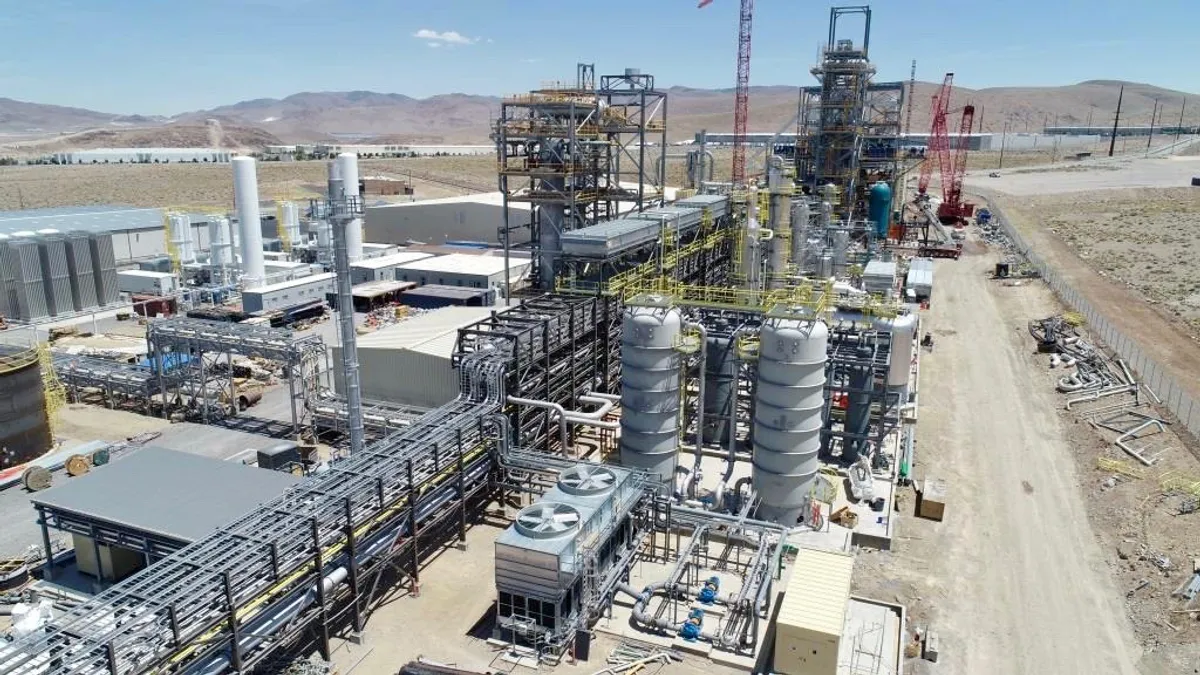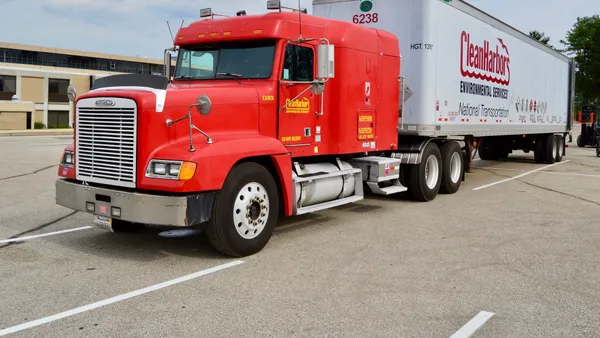Dive Brief:
- Fulcrum BioEnergy, a waste-to-sustainable aviation fuel company that has partnered with BP, WM, Marathon Petroleum and others, recently entered forbearance on $289 million in bond financing tied to its Sierra BioFuels Plant & Feedstock Processing Facility in Reno, Nevada, according to public documents.
- Fulcrum must now work with trustee UMB Bank to come up with an alternative financing agreement to pay off the debt under an agreement that could expire on Nov. 13. UMB demanded accelerated repayment in its notice of default.
- The company’s planned Gary, Indiana, facility is also reportedly on hold. Officials in Indiana have said they still believe Fulcrum will move ahead with its project despite the financial challenges, the Northwest Indiana Times reported last week.
Dive Insight:
Fulcrum said its Reno site was the first commercial-scale waste-to-SAF plant when it began initial operations in May 2022. But the facility has been ensnared in troubles since before its completion.
Fulcrum did not respond to requests for comment about its finances or future plans. A spokesperson for BP, which made a $30 million equity investment and agreed to a 10-year, 500 million gallon jet fuel offtake agreement with Fulcrum in 2016, said the oil major doesn’t comment on the finances of its portfolio companies, but affirmed the offtake agreement was still in place.
At the Reno facility, its first, Fulcrum intakes waste going to WM’s Lockwood Regional Landfill and processes it into synthetic crude. Waste Connections also is contracted to supply some waste to the facility. The synthetic crude oil is then sent to a Marathon Petroleum refinery to be converted into SAF.
WM did not respond to requests for comment. A spokesperson for Marathon confirmed the company still has its offtake agreement but declined to reveal how much syncrude it was receiving from Fulcrum before the forbearance period began. Other previously announced partners include United Airlines, Cathay Pacific Airways and the U.S. Department of Defense.
Fulcrum announced it had successfully begun producing its syncrude at the Reno facility in December after initially hoping to do so in the second quarter of 2022. In 2016, the company said the SAF it creates reduces emissions by more than 80% compared to conventional jet fuel.
In a Dec. 20 statement, Fulcrum CEO Eric Pryor called the production of syncrude a “watershed moment” for the company and broader efforts to develop SAF from waste. He said the company planned to replicate its success at future facilities. “After more than a decade of dedication and perseverance, successfully creating a low-carbon fuel entirely from landfill waste validates the strength of our process and our partners' unwavering belief in and support for our business model,” Pryor said.
Public documents reveal Fulcrum first missed its monthly payment on the Nevada bonds in August, leading to a notice from trustee UMB Bank and negotiations over a path forward. Fulcrum entered into its most recent forbearance agreement with partners on Oct. 25 after UMB Bank first notified bondholders that Fulcrum was in default, The Bond Buyer reported. The bond was first agreed to in October 2017 with a principal of nearly $106 million.
A spokesperson for the Nevada Department of Business and Industry confirmed the state is a conduit issuer of the bonds and therefore there is no financial risk or impact from the Fulcrum deal to the state.
The opening of Fulcrum’s Sierra BioFuels facility coincided with the early stages of Fulcrum’s financing for a second plant in Gary, part of broader expansion plans.
The Indiana Finance Authority, a quasi-public entity tasked with issuing bonds on behalf of state priorities, issued a $375 million environmental improvement bond for Fulcrum's Centerpoint project in 2021. Under the terms of the bond, Fulcrum had access to up to $500 million in tax-exempt financing for the project, which it originally had to pursue in 2022.
At the time of the bond's announcement, Fulcrum said it had already secured a biorefinery site in Gary and completed initial engineering. Fulcrum’s webpage for the project says the company received its air permit for the Gary site in 2022. Fulcrum also initially said it expected construction to start in 2023, but the webpage now says construction should begin next year and operations could commence by 2026.
Fulcrum’s planned facility in Gary would take up to 533 million gallons of prepared MSW feedstock annually and convert it into 33 million gallons of syncrude, according to the bond issued by the Indiana Finance Authority. The IFA declined to comment on the project through a spokesperson.
In addition to its plans in Gary, Fulcrum has also said it hopes to build facilities on the U.S. Gulf Coast and in the United Kingdom. Fulcrum’s expansion comes as the Biden administration has made SAF a priority, including by setting a goal to produce three billion gallons of sustainable fuel by 2030.











